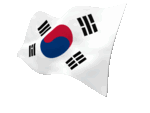The Marks Of An Educated Man
페이지 정보
본문

With his KBS television series of lectures on the Analects of Confucius, Mr. Kim Yong-ok, former professor of oriental philosophy at Korea University in Seoul, has made himself an interesting topic of conversation among my friends and colleagues. Although opinions are sharply divided for and against the content of the lecture and the performance of the lecturer, we must admit, I think, this different kind of TV entertainment has achieved a great success so far. The heated argument over the program itself is the very evidence of it. I wonder how Mr. Kim first conceived the idea of lecturing the old Chinese classic on TV, and I cannot but admire his courage, talent and tactics. His confidence in his own ability to make the archaic stuff attractive to the people in general through TV is worthy of our praise.
Dresses in the traditional Chinese costume, his head shaved like a Buddhist monk, with his unique eloquence, high-pitched tone, harsh voice, histrionic gestures, occasional frank and bold comments on the current social as well as political issues, unashamed self-praise and display of his own erudition, by employing several foreign languages, and flaunting his Harvard University diploma, Mr. Kim pleases many and exasperates some. At any rate, his performance is good enough to capture the attention of any kind and level of audience. He makes the heavy and prosaic material light, new and easy to understand. For many admirers of him who are thirsty for some kind of food for thought from TV, his show provides them with exactly what they want. By merely seeing the show they come under the illusion of being educated.
Naturally and inevitably Mr. Kim's spectacular success as a 'television professor' has brought him under the rigorous scrutiny, analysis and anatomy of those few who are well-prepared for and deeply knowledgeable about the subject. A few of experts on Chinese classics in the country pointed out his grave errors in translating and interpreting the text of the Confucius's Analects, and some began to criticize his somewhat too authoritative or authoritarian manner. As a professor of English, I have been watching and enjoying this special brand of entertainment, but very unexpectedly, the other day, in an amicable family gathering for the anniversary for my late father, the mild conversation on the program and the man among the participants developed into a noisy quarrel, raised their blood pressure to the point of danger, and stopped short of blowing up the solemn event itself. One camp excoriated him as a fraud, the other hoisted him up as a great scholar.
A fraud or a scholar, that is the question. I wonder how all this vast chasm of opinions has been formed over a television program. As an intellectual in the country I feel obliged to tell a fraud from an authentic. How can a professor of oriental philosophy become a fraud? You may ask. My answer to this question is affirmative. Any man, any intellectual, - professors, poets, priests, politicians, or what not - can become a fraud or liar in spite of himself. In fact, we are surrounded by these intelligent but unconscious frauds. Many a poet who produce only inferior poems are deeply convinced, under the intoxication of their own high estimation, that they are equal or even superior to Shakespeare. Many hypocrites behave and believe as if they were really some kinds of saints. Fervent advocates of democracy in our country in the past and present were and are not aware that they were only democratic in their words, not in their deeds. Some of the worst tyrants in history have been very sincere in their effort and purpose. These people habitually deceive themselves but they do not know they are liars. We may attribute the motives of this phenomenon to many and unknown reasons and causes, and leave the study and analysis of them to the psychologists or psychoanalysts, but we cannot afford to be taken in by them. One of the marks of an educated man is to be able to listen to a phony argument and see its dishonesty.
Whatever the subject it deals with, TV is not an ideal medium for a serious education to begin with. In the immensely large classroom of TV there is only huge audience to please, and we cannot expect or demand work and pain from them that any true education requires and imposes. Television must attract and hold the attention of the viewers. Inevitably any subject in it becomes an object to see and enjoy, not a hard work to do and prepare for. That is the sad fate of all the TV programs. Instinctively Mr. Kim understood this pleasure principle and acted accordingly, and succeeded.
But as time went on with his popularity soaring, Mr. Kim seems to have forgotten this principle and his role as a special kind of entertainer, and really seems to have become a teacher, nay a great scholar under the intoxication of his own exuberance. Now he seems to believe what he says. He seems to really believe that with his display of smattering knowledge of several foreign languages he really knows them all. It seems that it is not with his tongue in his cheek when he says that he knows more and better of Lao-tzu or Confucius than any other scholar in the country. This is a disaster, a grave symptom of illness called megalomania. And this disease is the first step for all the good, intelligent and well-meaning individuals falling into the realm of the unconscious frauds.
One of the most conspicuous marks of the educated man, among many, is his deep awareness of ignorance of the subject on which he is engaged. The deeper he goes into it, the darker the forest of knowledge becomes, he finds. The joy, confidence and enthusiasm with which he started the journey of learning pale before the depth and width of knowledge that knows no bounds. His happiness and pride, therefore, lie in the constant discovery of new ignorance, not in boasting of what he knows. No truly great scholars in history, Lao-tzu and Confucius included, have ever said that they know anything, let alone much. They were all humble and modest before ignorance and even apologetic of being ignorant. Socrates, the wisest of all, was known to us not because he was omniscient but because he realized at the age of seventy that he still knew nothing.
(May 8, 2001)
- 이전글After Forty Years 21.01.13
- 다음글Ode To Beginning Drivers 21.01.13
댓글목록
등록된 댓글이 없습니다.








